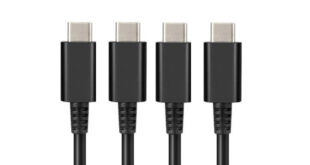When Nintendo lifts the lid on the still mysterious Project Cafe at its E3 press conference in two hours it will mark the end of the longest wait for new hardware the industry has seen in nearly two decades.
Yet despite the barren period, the market has remained resilient. Here was ask industry analyst Nick Parker for his take on why that is:
Leading games industry analyst Nick Parker highlights six reasons why an unprecedented gap between launches doesn’t mean an unprecedented slump in sales.
This has been the longest period without a new TV-based console launch since the mid-80s but there are a number of reasons why the industry is coping and not yet slinging mud at the manufacturers.
Historically, the market has been in decline across all platforms when life cycles come to an end due to saturation of households and hype of the next generation on the horizon.
By now, we should be in mid-launch or at least have received indication of arrival dates. As it is, all we know is that Nintendo will announce something at E3. But, are we concerned, has the market dried up? Rumours of our demise are being greatly exaggerated. And these are the reasons why we are not so impatient this cycle:
* The UK market may be in decline year-on-year but not on all platforms. The dominant Wii – which held a quarter of all software unit sales in 2008 – declined by 32 per cent from two years ago to the end of 2010, but Xbox 360 and PS3 software grew in the same period by 22 per cent and 33 per cent respectively in volume terms.
Combined software unit sales from the three consoles are the same as in 2008, even if the total interactive games market has declined by 24 per cent since that year. We are therefore not yet at the end of this generation cycle in volume of console software purchased. Total UK unit software sales from the first six years of this cycle (since 2005) are 35 per cent higher than the same previous cycle period (2000 to 2005) as shown in the chart (see below right).
* The Wii Fit and the Wii controller interfaces were responsible for the success of the Nintendo platform. PlayStation Move and Microsoft Kinect have certainly generated stimulation and hardware sales more than four years after the initial launches of their mother hardware and they may continue to do so for another year.
* Historically, the PlayStation brand has defined the last two generations but due to Sony Corporation facing financial performance challenges from 2007, the retail price, supporting the significant investment in the Cell processor development and the future proof features, the PS3 could not be competitive from the outset. Not until the summer of 2009 could PS3 grow its appeal to its loyal consumers who remained patient, at least on mainland Europe. One could say that the full impact of this current generation in Europe did not start until that moment.
* Gamers these days have other activities to indulge in rather than wait around for the next best console thing. Online games are taking over gaming time; the core market of 10 to 19 years have Facebook and mobile phones, platforms which did not exist 10 or even five years ago. GameVision, the industry standard in consumer intelligence, points out a declining share of the market for under 19-year-old console gamers in Europe in the last year.
* Allied to this is the vast improvement in the PC gaming experience, from MMOs to browser titles, which are keeping the core gamers content, gamers who would previously have relied on the console to provide the same hit.
* An unknown future is a reason for all of us not to try to push the manufacturers into responding too quickly with new technology, as this may be too advanced for consumers not ready to adopt the new world technologies. Conversely, the console manufacturers are wary of releasing technology which could become redundant quickly if challenged from either a new entrant, or from consumer changes in video gaming preferences.
So for some console manufacturers, there is still some way to go in this cycle and gamers are still experimenting with the entertainment in their lives surrounding gaming. Core gamers can enjoy similar experiences from online PC gaming and are prepared to experiment in the new world rather than moan about the lack of new consoles.
——–
Nick Parker is the founding partner of Parker Consulting Ltd, advisors in strategic planning, business intelligence and research for the games industry. Contact nick@parkerconsulting.biz
To read MCV’s full Console Generation gap feature, click here.

 MCV/DEVELOP News, events, research and jobs from the games industry
MCV/DEVELOP News, events, research and jobs from the games industry



